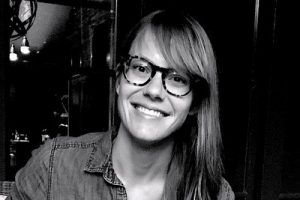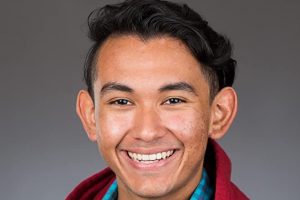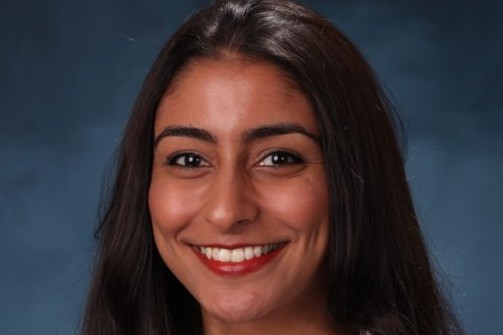Sarah Kark and Sandra Gattas win funding for their research
Our lab members are always achieving greatness, and this recent award season definitely showcased some of our talent. Postdoctoral scholar Sarah Kark and MD/PhD graduate student Sandra Gattas both received individual awards for their contributions to the research and community goals of the Center for the Neurobiology of Learning and Memory (CNLM). These awards provide up to $1,000 in funding towards their research goals, and further UCI’s mission of continued excellence through scholarship and scientific research.
I caught up with our labmates to chat about their awards.
 Sarah Kark’s journey to neuroscience began early
Sarah Kark’s journey to neuroscience began early
We asked Dr. Sarah Kark about what inspired her to pursue neuroscience as a career, how her journey led her to win the 2020 Roger W. Russell Scholar’s Award in the Neurobiology of Learning and Memory, and what the CNLM means for her research goals.
Blake: What led you to study neuroscience?
Sarah: I was a curious and dedicated Behavioral Neuroscience major in college, but I think what prompted me to pursue neuroscience as a career was my experience as a Research Assistant at the Boston Veterans Administration (VA) Hospital. My job was to coordinate neurorehabilitation clinical trials for Iraq and Afghanistan 9/11-era Veterans with post-traumatic stress disorder and blast-induced traumatic brain injury. I remain forever changed by my experience working with these men and women and hearing their life stories. At the time, I was surprised to learn how many fundamental science questions about how emotion and memory work, even in healthy people, were still unanswered. These gaps in knowledge spurred me to pursue a Ph.D. in Elizabeth Kensinger’s laboratory at Boston College. As a post-doc working with Dr. Michael Yassa, I am applying computational neuroscience approaches to answer new questions about the links between brain dynamics and psychopathology, grief, and emotional memory.
Blake: Roger W. Russel’s Award has three criteria: dedication to exacting scholarship in the conduct of research, personal attributes of integrity and collegiality, and steadfast and strong support of the goals and programs of the CNLM. How do you feel you’ve emulated each of them as this year’s recipient?
Sarah: Despite the ever-present pressure to publish in academia, I only submit an article when I am sure of its accuracy and rigor. It takes quite a bit of time to work like this and might seem excessive at times. Still, I believe it’s critical to be sure of each result, and its corresponding interpretation before my work can influence someone else’s work. I take the responsibility very seriously. This exactness begins at project inception. It takes care to thoughtfully choose the most appropriate techniques because seemingly small choices can have significant consequences on subsequent results.
A key trait of Dr. Russell was his friendliness. In an increasingly competitive field that can be hardening, I cultivate personal attributes that echo those of Dr. Russell. I strive to leverage my sincere warmth, friendliness, and enthusiasm for science to promote collegiality. Fortunately, I have also learned from my closest mentors how to be a simultaneously productive and congenial leader. I believe layering scientific rigor and hard work with an air of lightness can help bring out the best in colleagues and students, and thus, the best science.
As a CNLM ambassador, I have directly served the CNLM and broader Irvine community by participating on the professional development panel at the 2019 Brain Camp, assisting at the Barclay lectures, volunteering at the 2020 Annual Brain Bee, and fostering relationships with friends of the CNLM.
Blake: How has the CNLM impacted your research or perspective on the role of scholars in the community?
Sarah: The mission and impact of the CNLM extend far beyond its dedication to “crack the memory code.” I have only been a part of the CNLM for a year, but I have already seen the many ways its service- and community-oriented environment impacts its early-career scholars and our sense of responsibility to the public. Its leaders and trainees are not just thinking about how our work might inform the community, but rather they are taking action to create diverse outreach events to educate the community. Since my arrival, the openness of the CNLM environment has made it possible for me to chat science over espresso with Dr. James McGaugh, have dinner with Dr. Elizabeth Loftus, talk brain injury with UCI men’s basketball coach Russell Turner, and have the great pleasure of connecting with the former mayor of Irvine, Beth Krom. Being a part of the mission of the CNLM has strengthened my sense of responsibility and call-to-action as a scholar. It’s a refreshing and productive shift in the paradigm to feel the academy is a part of the fabric of the community, and not a separate entity.
 Sandra Gattas appreciates the collaborative nature of the CNLM
Sandra Gattas appreciates the collaborative nature of the CNLM
I asked Sandra Gattas how her neuroscience adventure began, what it was like to hear she won the Jared M. Roberts Memorial Graduate Student Award, and how the CNLM has impacted her research goals.
Blake: What led you to study neuroscience?
Sandra: I was fascinated to know that the brain communicates via electrical signals. Then I learned that we can record such signals directly from the human brain and via multidisciplinary approaches, and make inferences on what these signals could mean. These aspects of neuroscience are intriguing for me.
Blake: What was it like to hear you had been awarded the Jared M Roberts Award?
Sandra: It was quite encouraging, especially during this season where we are not directly meeting with one another.
Blake: How has the CNLM impacted your research or perspective on the role of scholars in the community?
Sandra: Being surrounded by the CNLM faculty has shaped the manner in which I pose scientific questions about memory processing and how I reason through my results. I’ve also had the chance to collaborate with several faculty for a given project at hand – which is a huge plus for being in a circle of experts on topics that are connected.
We love sharing our colleagues’ successes, and are certain there will be many more!
 Author:
Author:
Blake Alec Miranda is a Research Specialist with the Yassa Lab. He earned a Bachelor of Science in Cognitive Science from UCI in 2018, and has worked for the university in a variety of academic and professional roles. He specializes in writing scientific blogs and copy that are optimized for online search engines, and his work can be found on Medium, LinkedIn, and other neuroscientists’ blogs.
